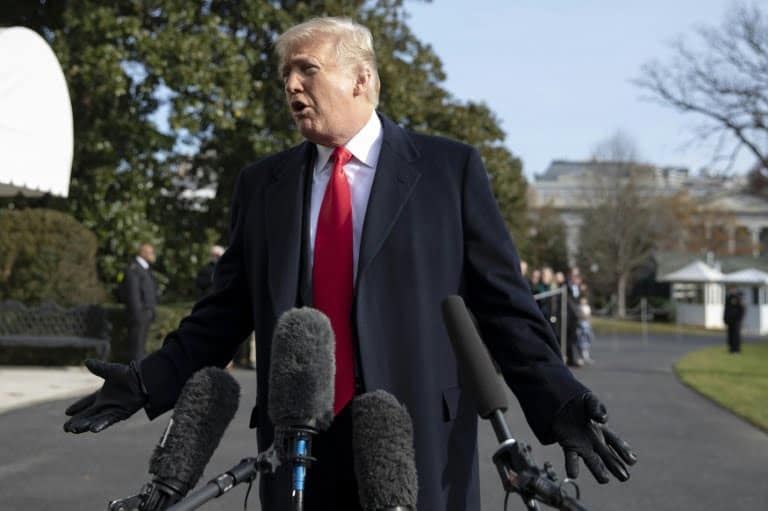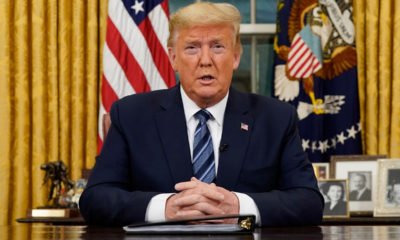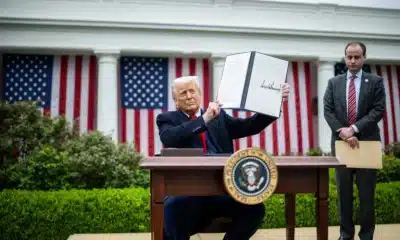World News
US National Debt Hits Record High $22 Trillion For The First Time In History

Experts Worry Over Increasing US Debts
The U.S. national debt has topped $22 trillion under President Donald Trump but Republicans who traditionally rail against debt and deficits have remained mum.
Naija News understands that the sum of borrowing to cover chronic deficits as well as growing interest payments, this mountain of debt already stood at $19.95 trillion when Trump entered the White House, reaching the equivalent of US GDP for the first time since World War II.
The debt has ballooned by more than $2 trillion in the two years since President Trump took office in January 2017, when the debt stood at $19.9 trillion. It surpassed $21 trillion for the first time in history in March 2018.
Under the Obama administration, the national debt grew from $10.6 trillion to $19.9 trillion, an increase that drew sharps criticism from Republicans.
Michael Peterson, CEO of the Peter G. Peterson Foundation, a fiscal policy think tank, said Tuesday’s milestone is only “the latest sign that our fiscal situation is not only unsustainable but accelerating.”
Here is something to note:
Remember @realDonaldTrump 's campaign promise that he would eliminate the entire national debt in 8 years?
Under Trump the national debt has soared $2 Trillion & now tops $22 trillion for first time in U.S. history. https://t.co/unJmoALLn2
— Carolyn B. Maloney (@CarolynBMaloney) February 14, 2019
“Our growing national debt matters because it threatens the economic future of every American,” Peterson said in a statement. “As we borrow trillion after trillion, interest costs will weigh on our economy and make it harder to fund important investments for our future … In order to build a strong and stable future that we want for America, we must put our fiscal house in order and begin to manage our national debt.”
By comparison, France’s debt, which also is about the same as its GDP, amounted to a little more than 2.3 trillion euros (about $2.6 trillion) in late September.
The massive corporate tax cuts that Trump pushed for at the end of 2017, and the surge in spending, especially in defense, have increased the fiscal deficit for the world’s largest economy.
“If we don’t have a strong military, you don’t have to worry about debt, you have bigger problems,” Trump told reporters last week.












